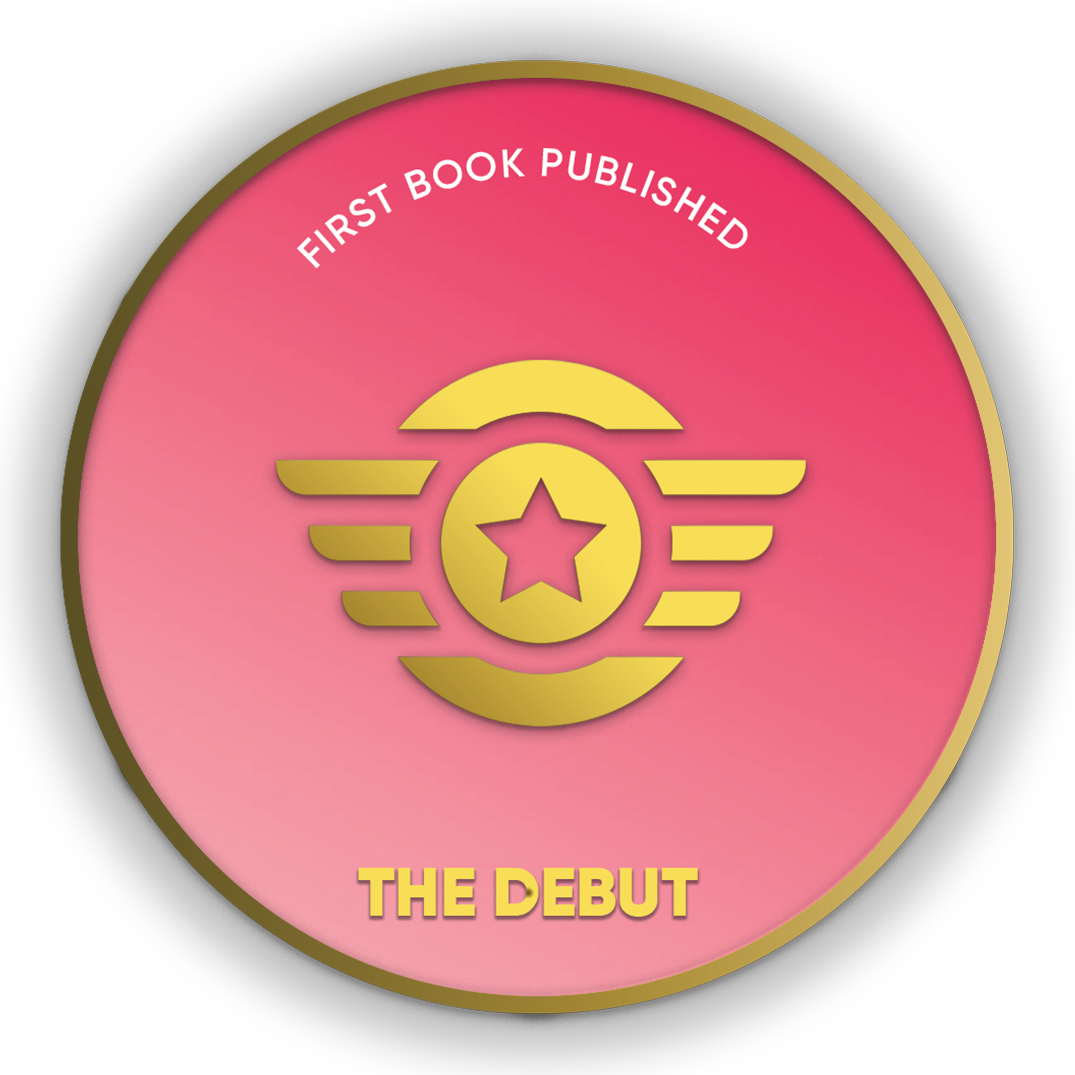
- Discover books
- For Writers
-
For Writers
-
Indie Author Championship
-
Challenges
Writing Contests
- Get Started

"It was a wonderful experience interacting with you and appreciate the way you have planned and executed the whole publication process within the agreed timelines.”
Subrat SaurabhAuthor of Kuch Woh Pal -
-
-
IN
- India
- Singapore
- Malaysia
- UAE
- 0
JITENDRA DEVCHAND MORE
writerMr. Jitendra D. More: Currently a registered Ph.D. candidate at KBC NMU Jalgaon, Maharashtra, after completing his Master's degree in Pharmaceutical Quality Assurance at Mumbai University. With three years of classroom experience and five years of industrial exposure in the quality assurance department, he is now an associate professor at the OBVS Prof. Ravindra Nikam College of Pharmacy in Gondur, Dhule, and Maharashtra. There is 4 book and 15 scholarly articles (both domestic and international) by him. He was a regular at both domestic and international pharmaceutical conferences.Read More...
Mr. Jitendra D. More:
Currently a registered Ph.D. candidate at KBC NMU Jalgaon, Maharashtra, after completing his Master's degree in Pharmaceutical Quality Assurance at Mumbai University. With three years of classroom experience and five years of industrial exposure in the quality assurance department, he is now an associate professor at the OBVS Prof. Ravindra Nikam College of Pharmacy in Gondur, Dhule, and Maharashtra. There is 4 book and 15 scholarly articles (both domestic and international) by him. He was a regular at both domestic and international pharmaceutical conferences.
Read Less...Crop your profile image

A Text Book of "pharmaceutical Jurisprudence" Strictly As Per PCI Delhi Syllabus
Books by Prof. Jitendra Devchand More
"Pharmaceutical Jurisprudence: A Comprehensive Guide" is meticulously crafted according to the Pharmacy Council of India (PCI) Delhi syllabus pattern, catering to the specific needs of pharmacy students. This essential textbook covers fundamental topics such as pharmaceutical legislation, regulations, ethics, and professional responsibilities. With a clear focus on the legal framework governing the pharmaceutical industry in India, the book equips students wit
"Pharmaceutical Jurisprudence: A Comprehensive Guide" is meticulously crafted according to the Pharmacy Council of India (PCI) Delhi syllabus pattern, catering to the specific needs of pharmacy students. This essential textbook covers fundamental topics such as pharmaceutical legislation, regulations, ethics, and professional responsibilities. With a clear focus on the legal framework governing the pharmaceutical industry in India, the book equips students with the knowledge and skills required to navigate complex legal issues and uphold ethical standards in their practice. Written concisely yet comprehensively, this book serves as an indispensable resource for pharmacy students aiming to excel in the field of pharmaceutical jurisprudence.
The Text Book of Instrumental Method of Analysis
Books by Prof. Jitendra D. More
Instrumental methods of analysis are a class of techniques used in analytical chemistry to determine the composition, concentration, and properties of chemical substances. These methods rely on the use of specialized instruments and devices to measure physical or chemical properties of a sample, which can then be correlated with the analyte's characteristics. This approach offers several advantages, including increased accuracy, sensitivity, and the ability to
Instrumental methods of analysis are a class of techniques used in analytical chemistry to determine the composition, concentration, and properties of chemical substances. These methods rely on the use of specialized instruments and devices to measure physical or chemical properties of a sample, which can then be correlated with the analyte's characteristics. This approach offers several advantages, including increased accuracy, sensitivity, and the ability to analyze complex mixtures.
One fundamental category of instrumental methods involves spectroscopy, which encompasses techniques like UV-Visible spectroscopy, infrared spectroscopy, and nuclear magnetic resonance (NMR) spectroscopy. In UV-Visible spectroscopy, for instance, the absorbance of light by a sample at specific wavelengths provides information about its molecular structure and concentration. Infrared spectroscopy identifies functional groups in organic compounds by measuring their absorption of infrared radiation, while NMR spectroscopy offers insights into the connectivity and arrangement of atoms in molecules.
Another important instrumental method is chromatography, which separates and quantifies the components of a mixture based on their affinity for a stationary phase and a mobile phase. Gas chromatography (GC) and liquid chromatography (LC) are widely used variations of this technique..
"A Text Book of Computer-Aided Drug Design"
Books by Prof. Jitendra Devchand More
The text explores many computational applications, including the three-dimensional modeling of protein structures, protein-ligand docking, and molecular dynamics simulation of protein-ligand complexes. These applications serve the purpose of discovering potential drug candidates with desired properties.
The text explores many computational applications, including the three-dimensional modeling of protein structures, protein-ligand docking, and molecular dynamics simulation of protein-ligand complexes. These applications serve the purpose of discovering potential drug candidates with desired properties.
A Text Book of Pharmaceutical Inorganic Chemistry-I
Books by Prof. Chandrakant Punamchand Suryawanshi
Study of pharmaceutical applications of the inorganic compounds led to the establishment of a new avenue called pharmaceutical inorganic chemistry. It deals with the study of preparation, standards of purity, limit test for determining quality ,purity and storage conditions of all inorganic compounds.
Study of pharmaceutical applications of the inorganic compounds led to the establishment of a new avenue called pharmaceutical inorganic chemistry. It deals with the study of preparation, standards of purity, limit test for determining quality ,purity and storage conditions of all inorganic compounds.
"A Practical Handbook of Medicinal Chemistry III" Strictly As Per Practical Syllabus Prescribed for B Pharmacy Sem-VI By PCI, New Delhi.
Books by Prof. Jitendra Devchand More
Medicinal Chemistry is an academic discipline concerned with the exploration and creation of novel medicinal compounds, as well as their subsequent transformation into efficacious pharmaceutical agents.
Medicinal chemists engage in the preparation and/or selection of suitable compounds for the purpose of biological assessment. These molecules, if shown to possess activity, have the potential to function as lead compounds. Subsequently, the researchers
Medicinal Chemistry is an academic discipline concerned with the exploration and creation of novel medicinal compounds, as well as their subsequent transformation into efficacious pharmaceutical agents.
Medicinal chemists engage in the preparation and/or selection of suitable compounds for the purpose of biological assessment. These molecules, if shown to possess activity, have the potential to function as lead compounds. Subsequently, the researchers proceed to assess the structure-activity relationships (SARs) of comparable molecules in terms of their effectiveness and safety in both in vitro and in vivo settings.
The curriculum philosophy seeks to equip students with the capacity to design and assess different forms of medication dosages. It also emphasizes the understanding and adherence to regulatory and ethical guidelines in the manufacturing processes of pharmaceuticals. Furthermore, the curriculum aims to provide students with comprehensive knowledge in the field, including scientific research advancements, fundamental principles, and advancements in Pharmaceutics and Pharmaceutical Chemistry.
Practical Handbook of Instrumental Methods of Analysis
Books by Prof. Jitendra Devchand More
Instrumental analysis investigates the use of scientific instruments to study systems. Typical topics that are included within this area are spectroscopy, nuclear spectroscopy, mass spectrometry, crystallography, electrochemical analysis, thermal analysis, separations, and Microscopy.
Instrumental analysis investigates the use of scientific instruments to study systems. Typical topics that are included within this area are spectroscopy, nuclear spectroscopy, mass spectrometry, crystallography, electrochemical analysis, thermal analysis, separations, and Microscopy.

Are you sure you want to close this?
You might lose all unsaved changes.
Select from one of our global stores to continue
 India
India
 Malaysia
Malaysia
 Singapore
Singapore
 UAE
UAE
Warning Message
The items in your Cart will be deleted, click ok to proceed.













